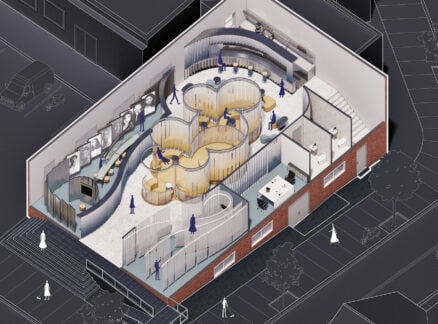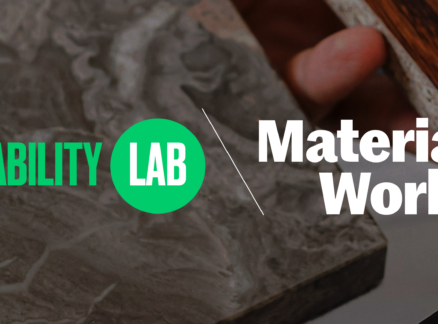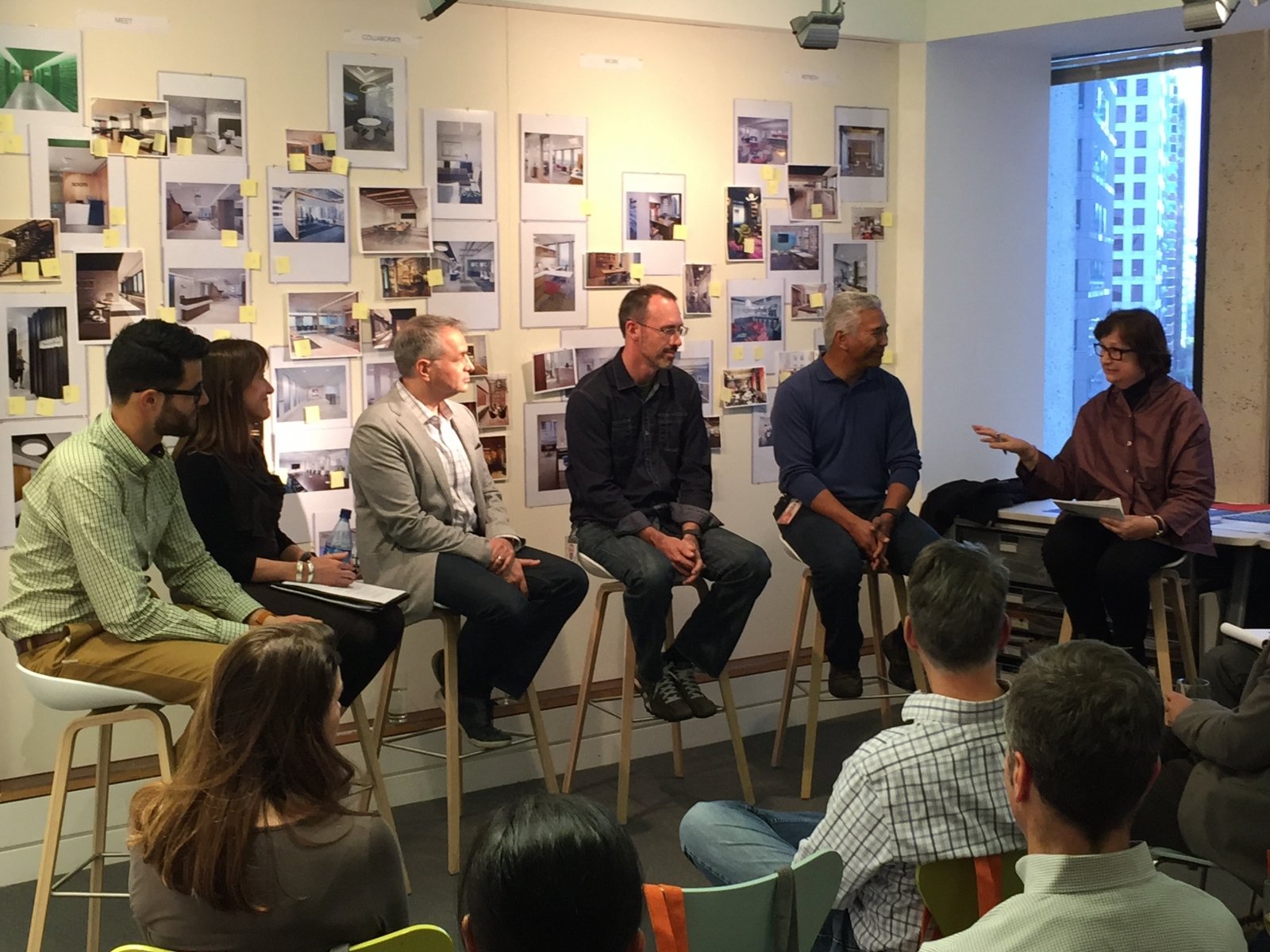
May 12, 2015
The Metropolis Think Tank Celebrates Human-Centered Design
The Metropolis Think Tank series is a live research program—it connects the wisdom of local knowledge groups with design thinkers, clients, and others.

Metropolis publisher/editor in chief Susan S. Szenasy discusses workplace design with Google and the Huntsman Architectural Group at the latter’s San Francisco office. Left to right: Dave Rhoads from Google, Linda Parker and David Meckley from Huntsman, Scott Fees from Google, Abram Harris from CBRE, and Szenasy.
All photos courtesy Zachary Brewster
Though few of us attempt to dive into the cultural tsunami we’re riding, we feel this massive wave raging and roiling around us. It’s sweeping through every aspect of our lives, including our educational system and what we learn, how we learn, and where we learn, starting in kindergarten and through a lifetime of connecting with useful bits of big data. It’s also changing how we do our work, what we do and where we do it, and with whom. In all this change, I detect a new humanism reshaping the places where we learn about our civilization and where we make a living. I see attention being paid to our innate need to reflect, collaborate, and congregate.
The place where we recover from a life-threatening illness, or succumb to it—the epicenter of our troubled health-care system—is where we most expect a shift toward humanism, but what we often get are platitudes and palliatives.
To witness this global shift brought on by a far-ranging tech infusion, we must go to the design and architecture offices where the wicked problems of our day arrive as commissions. We decided to do just that and find out for ourselves what today’s designers, their clients, and their consultants are working on, and what we can learn. To this effect, we designed the Metropolis Think Tank: The Human Factor, a series of conversations meant to dig into the new humanism that needs to be injected into every design project.
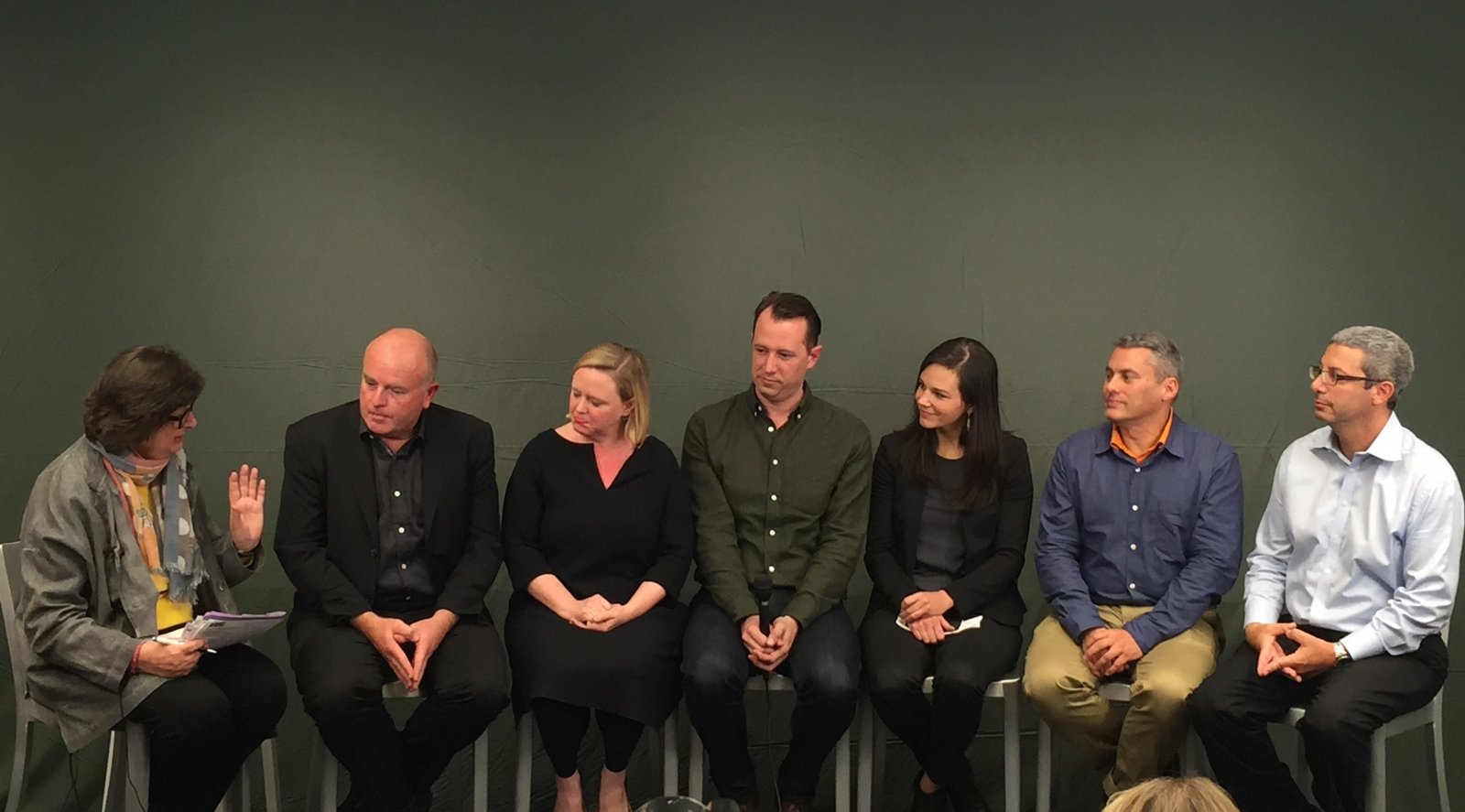
A discussion on lifelong learning hosted by Gensler in San Francisco. Left to right: Susan S. Szenasy; Lewis Knight, Melissa Mizell, Randy Howder, and Ashley Marsh from Gensler; Nathan Shedroff from California College of Arts; and Nate Goore from MTHINK.
Each Think Tank brings in voices that represent different knowledge groups—the firm itself, its client, the local research university, and the rich cache of consultants available in each metropolis. In San Francisco, at our first Think Tank stop this February, we wanted to find out how high-tech firms are showing us the ways of work in the twenty-first century. We also wondered about how California’s advanced environmental policies influence design at all scales.
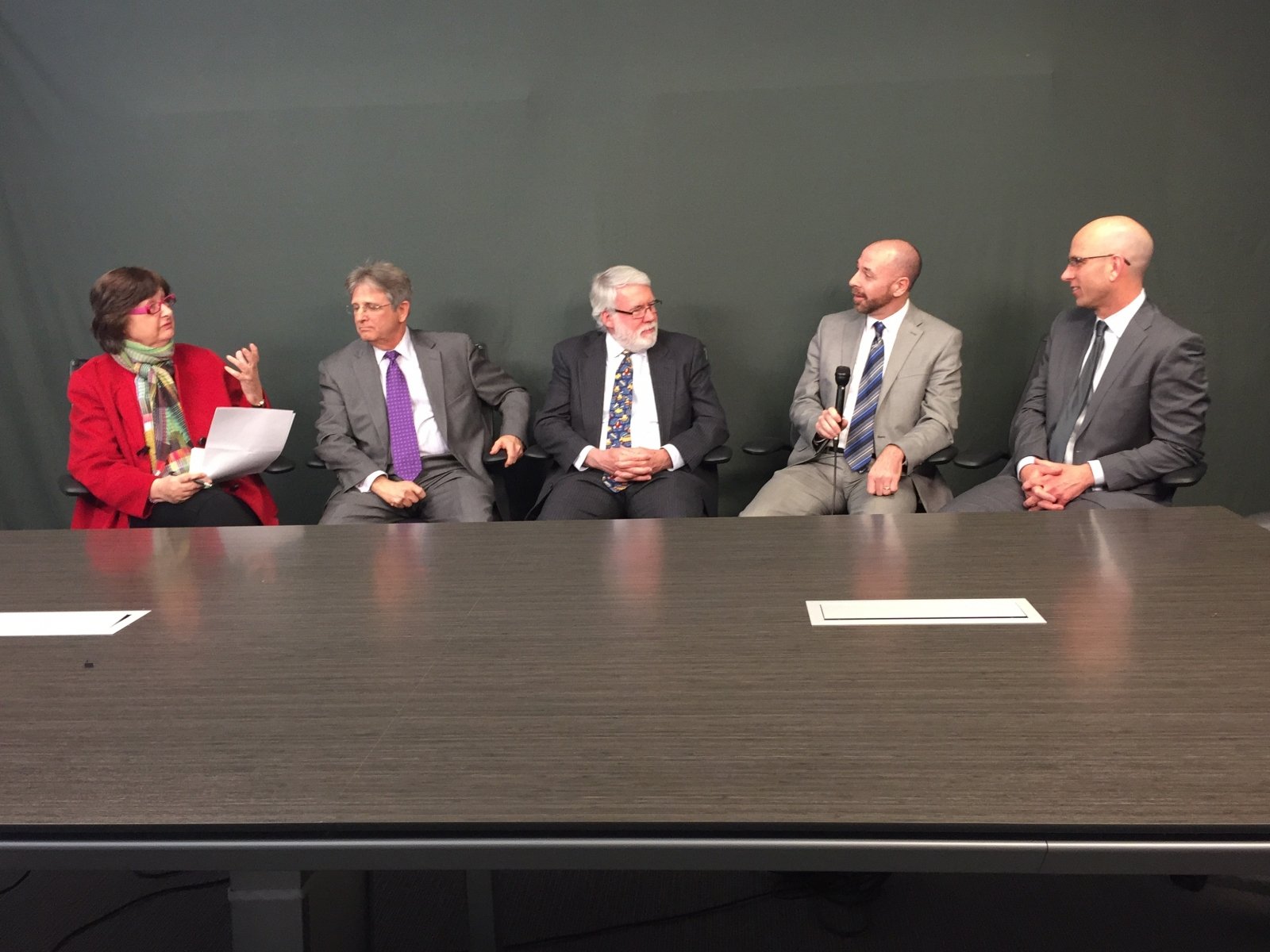
FGM Architects hosted Think Tank in their Oak Brook, IL headquarters to discuss how designers and administrators are responding to the changing needs of students. Left to right: Susan S. Szenasy, Augie Battablie and Kerry Leonard from FGM, Timothy Truesdale from J. Sterling Morton High School District 201, and Paul Gordon from Glen Ellyn School District 41.
At Huntsman we met some fascinating Googlers, who talked about the healthy materials they chose for their built environments, and about urging manufacturers to disclose the material content in their products. This is taking hold as an industry best practice. If only the tech giant was a bit less secretive and made public its materials choices and design solutions as case studies, they would raise the bar for human and environmental health everywhere. While published examples of Google’s workspaces remain few and far between, for now the designers at Huntsman are leveraging non-proprietary information learned from Google projects with other enlightened clients.
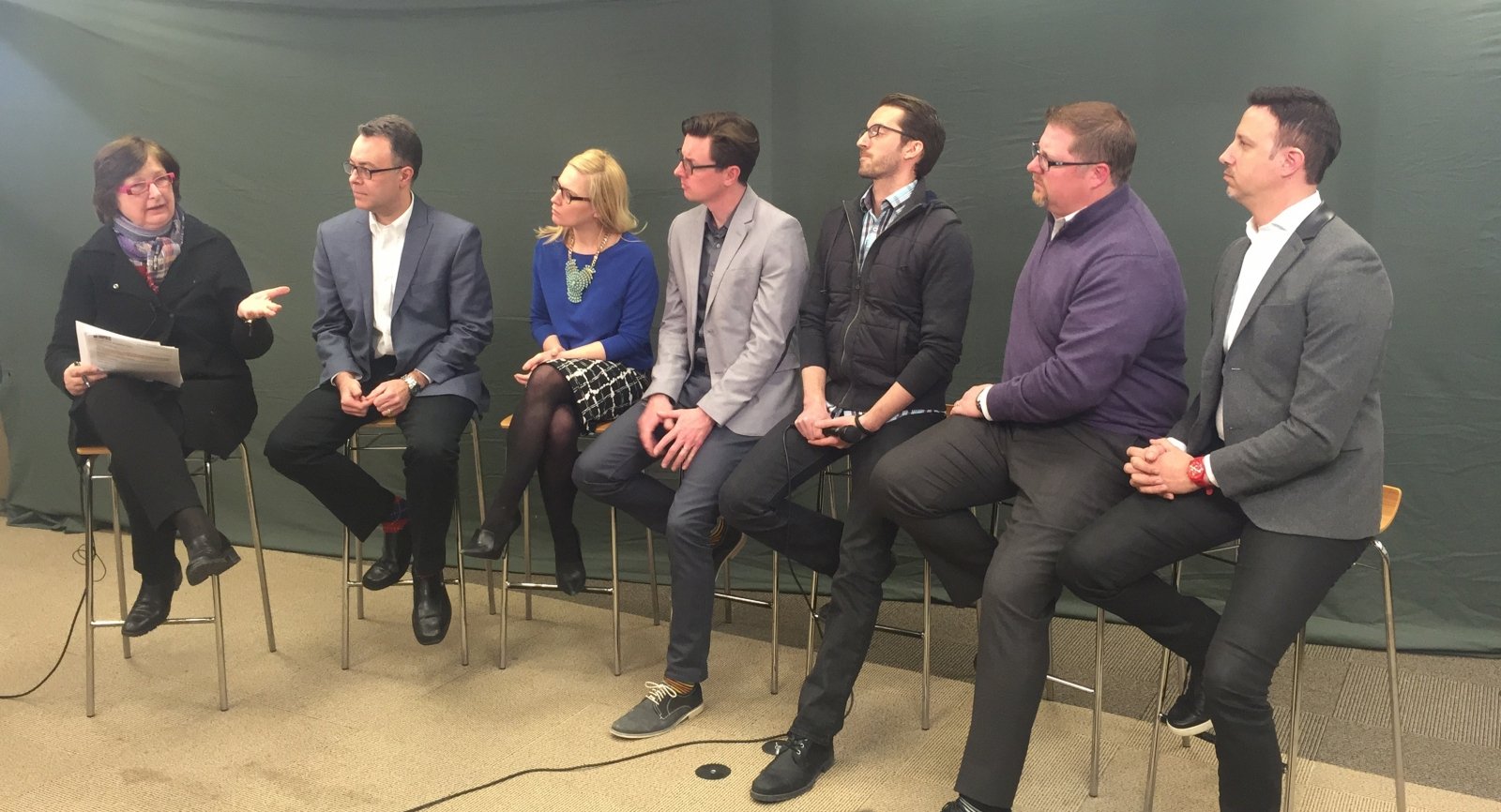
Think Tank visits HDR in Chicago to discuss their work with the American Medical Association. Left to right: Susan S. Szenasy, Mike Tutty and Meg Barron of the American Medical Association, and Ian Thomas, Joel Worthington, Jim Henry, and David Grandy of HDR.
At Gensler, the talk focused on disruption and transformation in education. In addition to its own design leaders, the firm invited local talent that included educators and strategists. Their thesis, education—at every stage of its lifelong span—is in a reinvention mode, and the spaces that we made for the ways of twentieth-century learning need a massive rethink. That rethink also requires an infusion of new knowledge.
I’m looking forward to digging, always deeper, into the potential and reality of human-centered design at our upcoming Think Tanks in 2015. I’m grateful to our sponsors—Bretford, Sunbrella, and DuPont Surfaces—for their support, curiosity, and genuine interest in discovering with us the fresh ideas that can respond, intelligently, to the changes that surround us. We’re all, in the final analysis, riding the same wave.



